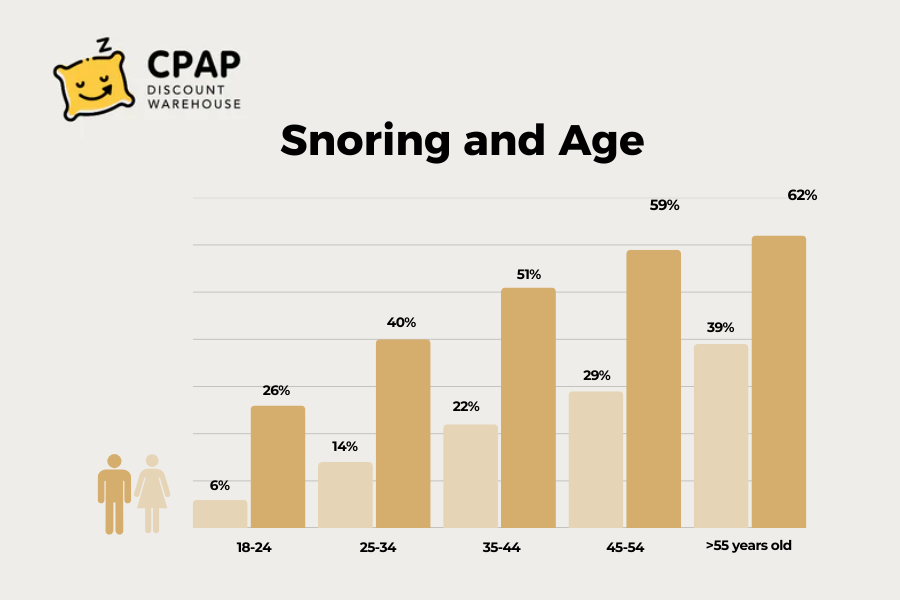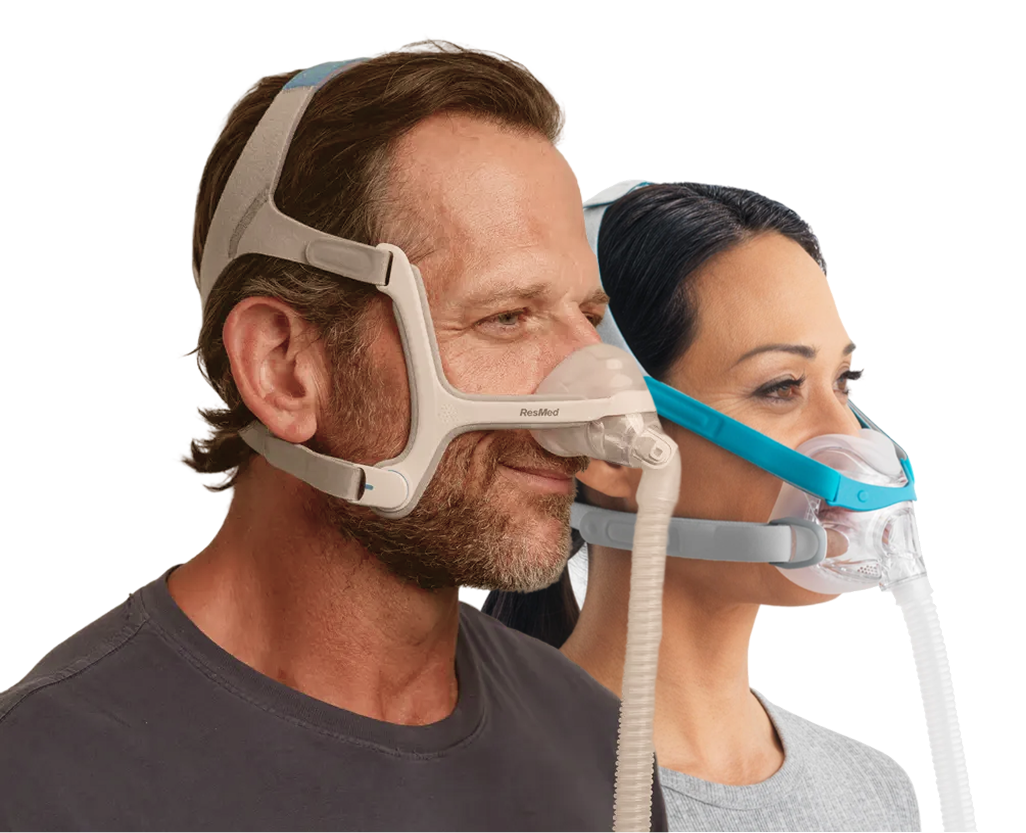Snoring can begin at any age, but it shouldn't be considered normal. In fact, it's often a sign that something is blocking your airflow during sleep. This usually happens when the muscles in your throat relax too much, causing your airway to narrow. As air rushes through this smaller space, it makes the soft tissues at the back of your throat vibrate and dry out. The result is the familiar sound of snoring. While it might seem harmless, snoring can be an early warning sign of obstructive sleep apnea, a condition that can affect your overall health if left untreated.
Snoring and Age
As we age, we tend to gain weight, including in the neck area. When the neck becomes thicker, the airways narrow, causing difficulty breathing and, as a result, snoring. In addition, as we age and become less physically active, we lose muscle strength, including in the neck area. The atrophy of these muscles exacerbates the problem.
Older people often take medications such as prednisone for arthritis or other chronic pain. A side effect of prednisone is weight gain. Another factor contributing to snoring in women is the hormonal changes associated with menopause. Decreased estrogen levels exacerbate muscle loss.
60% of men and 50% of women snore loudly. Approximately 70% of people affected by this disorder are greatly annoyed by their partner's snoring and lose two or more hours of sleep.

Why Do We Snore as We Get Older?
As we age, several changes occur in the body that can influence our breathing during sleep. Understanding why we snore as we get older begins with recognizing the key anatomical and physiological shifts that happen over time.
Decreased Muscle Tone
Although people of all ages can snore, those over 35 are most affected. With age comes wisdom, but the muscle strength of the entire body, including the throat, also decreases. This means that you may lack the muscle strength to keep your airways open during the night.
Narrower Airways
The upper airway may become narrower with age due to the natural loss of elasticity in soft tissues. This narrowing increases airflow resistance and the likelihood of turbulent breathing, which contributes to snoring.
Weight Gain
As we age, the pattern of weight gain changes, and weight often begins to accumulate in the neck area. This narrows the airways when you lie down at night, making it difficult to breathe properly.
Hormonal Changes
In women, hormonal changes can cause snoring (or make it worse). You are also at greater risk of developing sleep apnea: estrogen and progesterone maintain the tone of the airway muscles and prevent them from collapsing. As these hormone levels decline, the risk of developing sleep apnea (when the airway closes completely) increases.
When to see a sleep expert?
Snoring can sometimes indicate the presence of sleep apnea, a condition that may require medical attention. If you snore and also experience any of the following symptoms of obstructive sleep apnea (OSA), it might be a good idea to consult a doctor:
+ Breathing pauses during sleep followed by choking, snorting, or gasping
+ Frequently waking up throughout the night
+ Feeling excessively sleepy during the day
+ Waking with headaches in the morning
Many people who snore are unaware of it. Often, it’s a bed partner or someone else in the household who notices the snoring or related symptoms. If your snoring is disrupting your partner’s sleep or raising concerns, speaking with a healthcare provider could help you explore possible treatment options.

How do you treat snoring?
If you’re dealing with snoring, there are several effective options to help improve your breathing at night. Nasal strips, throat sprays and lozenges can all make it easier to breathe while you sleep. Simple lifestyle changes like exercising or losing weight, if you're overweight, can also make a big difference.
However, it's important not to ignore the possibility of sleep apnoea, especially if you're noticing other symptoms. Sleep apnoea is more common in older adults and is a more serious condition than simple snoring. While snoring happens when your throat partially narrows, sleep apnoea involves your airway closing completely for 10 to 30 seconds at a time. Watch out for signs such as daytime sleepiness, gasping or choking during the night, morning headaches or ongoing insomnia.
Doctors often recommend using a CPAP machine for treating sleep apnoea. CPAP helps keep your airway open by increasing air pressure, preventing it from collapsing while you sleep. At CPAP Discount Warehouse, we offer a wide variety of CPAP machines to suit your needs and budget.
There are also alternative treatments available. Many people find relief using oral devices that gently reposition the jaw during sleep. This helps to open the airway and can be effective for both snoring and mild to moderate sleep apnoea.

>>>> How to Stop Snoring? 8 Tips for a Quieter Night's Sleep
Conclusion
If you think you might have a sleep disorder, it’s best to speak with a medical professional. Our trusted partner, CLM Sleep, operates over 10 sleep clinics across Australia and can assist with sleep studies, diagnosis and treatment options. Your sleep and your health are worth taking seriously. CPAP Discount Warehouse is here to support you with expert advice and high-quality products that help you breathe better and sleep well.





